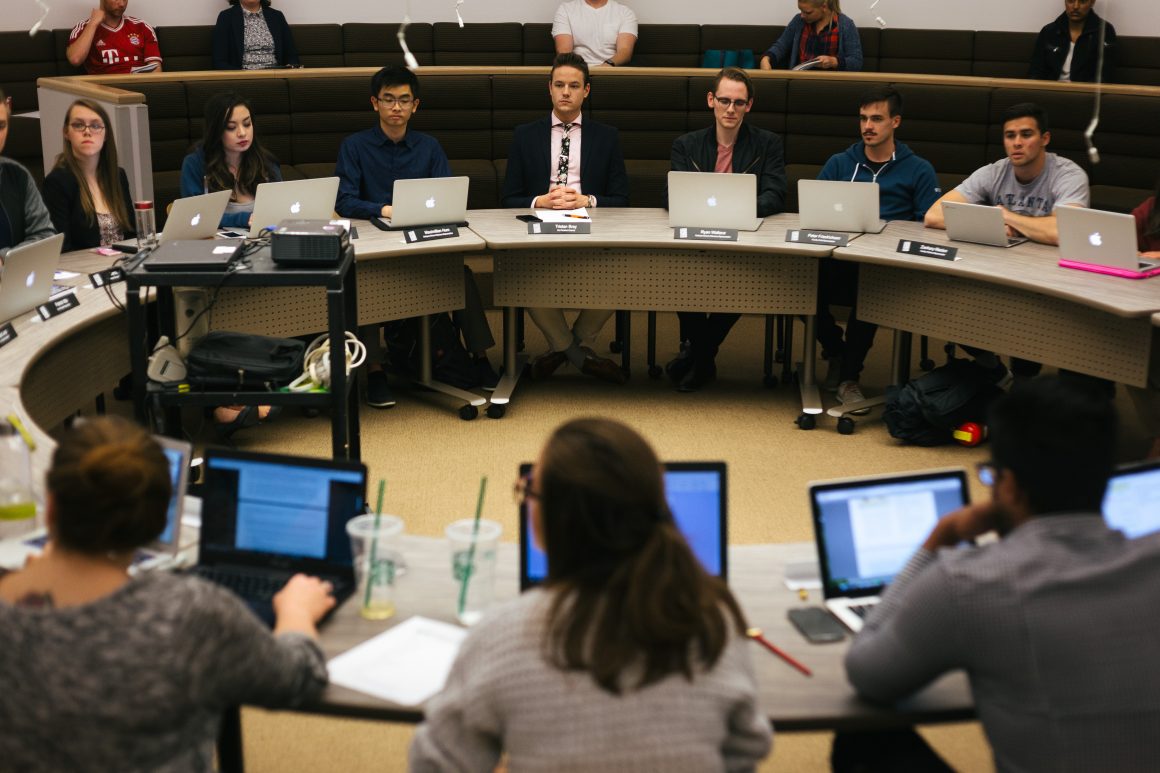
Students’ Union elected official reporting reform must adequately address accountability
By Tina Shaygan, November 21 2016 —
On Nov. 15, the Students’ Union Policy Development and Review Committee (PDRC) proposed to Students’ Legislative Council a policy that would, among other things, change the SU’s elected official (EO) reportings at SLC meetings from weekly updates to monthly reports. The proposal was followed by a heated discussion, with strong support from PDRC members.
Proponents of the policy argued this shift would result in a better use of SLC’s time, allow for a more comprehensive question period and create a culture change where EOs will not feel pressured to report something every week. The policy would also require SU executives to provide monthly updates rather than the current structure which requires trimester reports.
“Students deserve to be kept informed of what their elected officials are up to and we want to make sure that those reports are of the highest quality. And this is the way we’ve found to address that,” said SU vice-president operations and finance Branden Cave, who chairs PDRC.
Opponents of the policy argued it would reduce accountability and EOs’ sense of responsibility. They also argued constituents deserve to know what their representatives are doing on a more frequent basis.
Two of the more vocal opponents of the proposal were Werklund School of Education representative Carson Reveen and kinesiology representative Sagar Grewal.
“Monthly reporting is too infrequent. I think that the reports are actually really essential in keeping students informed as well as other EOs as to what is going on, which is why I argued that even more details should actually be included in these reports,” Grewal said.
Both parties agreed that the proposal is a direct response to the quality of EO reports, which often consist of irrelevant information
At the Nov. 15 SLC meeting, reports included statements like “attended this meeting,” “talked about my goals with students” and “attended the Gauntlet United States election results party.” While we here at the Gauntlet are flattered, this is the last thing that should go on an EO’s report. It is also unclear what the final products of those meetings and “consultations with students” actually are.
Wanting to make these reports monthly is understandable — it’s frustrating to sit at SLC every week for half an hour and listen to irrelevant information, sometimes only to sound like EOs actually did something. But while increasing quality is an important goal to pursue, there are fundamental changes that need to be made before the proposed policy can adequately address the content quality of EO reports.
Reveen said SU vice-president academic Alicia Lunz contacted him earlier in the year to provide feedback on his weekly reports.
“I feel like my reporting has improved since. Just looking at my own experience, I think that’s the best solution,” Reveen said.
Early intervention from an executive is an important and perhaps overlooked way to improve the quality of EO reports.
There is also the problem of taking disciplinary action against EOs that fail to provide adequate updates. The SU rarely takes disciplinary actions against its faculty reps and even less so for its executives. Currently, in order for SLC to take disciplinary action against a faculty representative, a complaint from a constituent or another member of SLC is required. Cave said this process would not be changed through the new proposal, so it is unclear how EOs would be held accountable for the content of their reports in a way that is different from the current system.
Another highly debated point at SLC was the “stigma” some EOs feel they face if they have nothing to report.
“I think there can be a stigma around feeling like you have nothing to report on a weekly basis. That being said, I think it was very clear in the meeting we had on Tuesday that we’re trying to push aside that stigma with these changes and almost instill a culture change in SLC,” said Jessica Revington, the Faculty of Nursing representative and a member of PDRC.
A number of SLC members stated at the Nov. 15 meeting that there is a culture in SLC where having nothing to report is frowned upon. But frankly, it should be frowned upon. The SU is a multi-million dollar organization trusted with managing hundreds of programs and training students for real-life positions. We can expect our elected officials to do at least something relevant to their jobs a few times a week.
While it is understandable that occasionally one EO might fall off the wagon, a trend needs to be called out. Students that work to pay their rent and bills can’t take a week off work because of school. It is shameful that SLC members would complain about being required to provide frequent updates and demand a “culture change.”
There are some positive aspects of this policy. First, its goal of improving EO reporting by allowing time for representatives to report on actual long-term projects is important. The policy also requires written submission of these reports, as well as written submissions from SU executives on a monthly basis, rather than trimester basis. And without weekly reports there will be more time dedicated to questions and discussions at SLC.
But whether SLC votes for or against this policy, more needs to be done in order to effectively solve the problem of low EO report quality.
That could be executives following up with their EOs or the SU taking disciplinary action on a more frequent and serious basis than we’ve seen before.
The problem of low report quality won’t be solved regardless of how often EOs are required to make reports until the SU takes firm action and indicates that messing around for a year on behalf of students is not tolerated. We elected these people and we should demand better.
